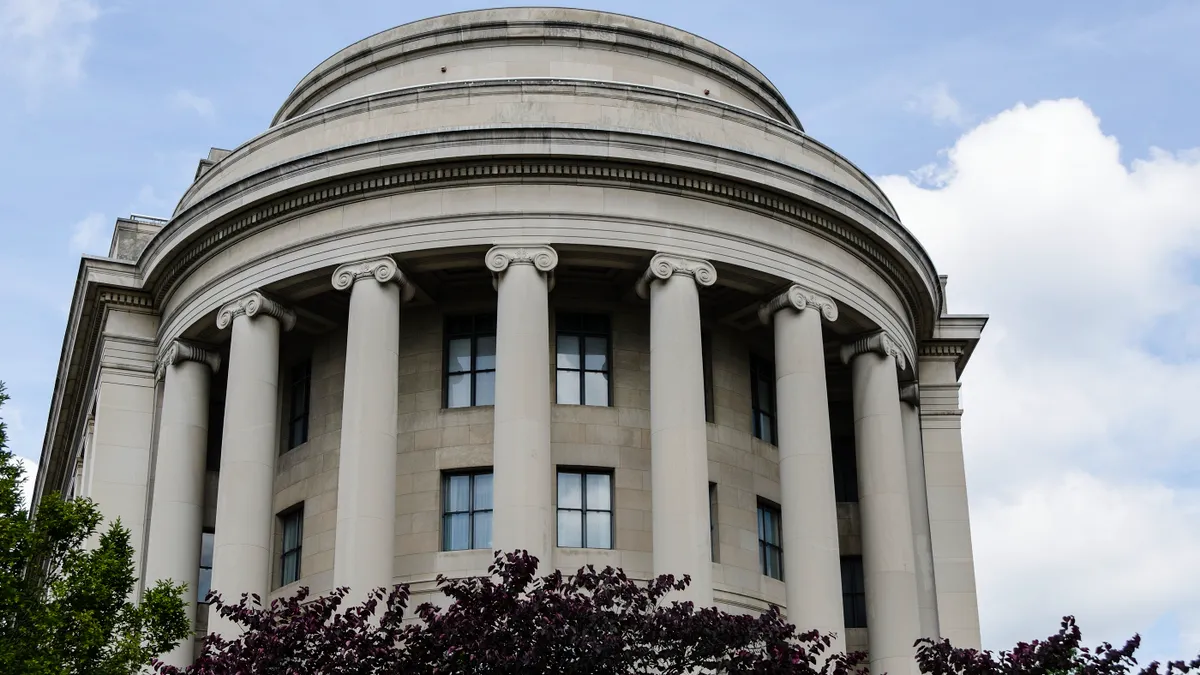The Federal Trade Commission’s proposed rule to ban noncompete agreements may have taken employers by surprise, but multiple attorneys who spoke to HR Dive believe the rule faces a difficult path before it can take effect.
“This is not a done deal by any means — far from it,” said Gregory Hare, shareholder at Ogletree Deakins.
Stakeholders have 60 days to submit public comments on the rule, which would not take effect until 180 days after the FTC publishes a final rule. Even after that point, however, the rule is likely to face legal challenges on several grounds, especially on the question of whether the commission has the authority to issue it in the first place.
Regulation of noncompetes may place the agency at odds with the U.S. Supreme Court’s major questions doctrine, under which general delegation of Congressional authority is not enough to permit agencies to address significant economic and political issues. The high court applied the doctrine in previous high-profile disputes over federal agency regulations, such as the Occupational Safety and Health Administration's COVID-19 vaccination emergency temporary standard.
“I ultimately think that the Supreme Court, if [the proposed rule] gets there, will strike the rule because the FTC does not have the authority to regulate noncompetes,” said Erik Weibust, member of the firm at Epstein Becker Green.
Proposal won’t change existing legal trends
In addition to questions about the commission’s authority to issue the rule, there is some speculation about the true extent to which noncompetes inhibit the movement of talent. That’s because state and local governments as well as courts have moved away from enforcing noncompetes, according to Dave Walton, partner at Fisher Phillips.
“There are not a lot of situations where you see a pure noncompete anymore,” Walton said. “In my experience, judges are more reluctant to enforce a noncompete.”
Hare also noted a “significant trend” at the state level toward limiting the types of employees who may be asked to sign noncompetes and other restrictive covenant agreements, a category that includes noncompetes as well as nondisclosure agreements, nonsolicitation agreements and similar constructs.
For example, Illinois prohibits noncompete and nonsolicitation agreements with employees whose actual or expected annual wages fall below a certain threshold. Rhode Island law prohibits noncompetes for employees who are classified as nonexempt under the Fair Labor Standard Act, among others.
To that end, Weibust said he is counseling clients to “take a deep breath and focus more on compliance with state laws,” given that the FTC rule may be months away from taking effect.
Even in cases where noncompetes may be permitted, employers generally must articulate a reasonable protected interest that would necessitate such agreements, Hare said. “For most employees, an employer does not have a great basis,” for enforcing a noncompete, he added. “They have a basis for saying, ‘Don’t take our customers or information,’ but very rarely do they say, ‘Don’t work for our competitor for a given time,’ unless it’s a market leader in that particular area or industry vertical.”
Could the FTC rule hurt some workers?
Others believe that despite the hurdles the FTC’s rule faces, employers still may need to pay attention to how it may interact with state and local laws. “Ultimately, if there’s a federal law or regulation then generally speaking, states would have to comply too, and state laws could only add to it,” said Peter Glennon, founder of the New York-based Glennon Law Firm.
Glennon, who has represented both employees and employers in noncompete litigation, said that the rule is too broad and vague and does not identify specific job types or worker categories for whom noncompetes should be banned. Instead the rule would institute a blanket ban, he said, even in situations when an employer may have a legitimate business interest or where a noncompete may even be beneficial to an employee.
Glennon used the example of a heating, ventilation and air conditioning company that hires workers as trainees and pays them to learn necessary skills before hiring them. Noncompetes ensure that such an employee can benefit from this arrangement without the employer risking that the employee will immediately take their skills to a competitor, he said.
But for other occupations, such as phlebotomist or security guard, “I cannot think of a legitimate business interest that would make a noncompete in that specific job valid,” Glennon said.
Hare noted similar concerns about the impact that a total ban on noncompetes may have on certain workers. Should the FTC rule take effect, he said some employers may have less of an incentive to give large books of business to any single employee, for fear of that employee leaving and taking an entire group of clients — or an entire industry segment, in extreme cases — with them.
“Frankly, it would stifle sharing of information, because if an employer feared that its information and client relationships could walk out the door, certainly the employer would be less inclined to share it,” Hare said.
Are noncompetes really necessary?
Regardless of where the rule ends up, now may be the time for employers to consider whether noncompetes are the best option for a given arrangement, Hare said.
Employers should consider entering nondisclosure agreements with employees who have access to sensitive information, for example, while they may want to consider entering nonsolicitation agreements with customer-facing employees, he said. Managers, meanwhile, could be asked to sign a nonrecruitment clause to prevent valuable employees from being signed away to a competitor in the event that a manager leaves.
Another option is for the employer to provide garden leave, Glennon said. Under a garden leave arrangement, an employer pays a departing employee to stay home rather than take up work with a competitor. That practice may prove too costly for some smaller employers, however.
At the same time, Walton said employers “are going to need to take a really hard look” at their nonsolicitation agreements to ensure that they cannot be construed as a noncompete.
The FTC said in its proposed rule that while other types of restrictive employment covenants would not be included in the definition of a noncompete agreement, such agreements would be considered noncompetes “where they are so unusually broad in scope that they function as such.”
Still, some are not too concerned about how the ban could impact employer use of other agreements. “Employers need to remember that some form of noncompete will likely survive any potential rule changes, and there are certainly other means that employers can rely on to protect their business,” Glennon said.




















